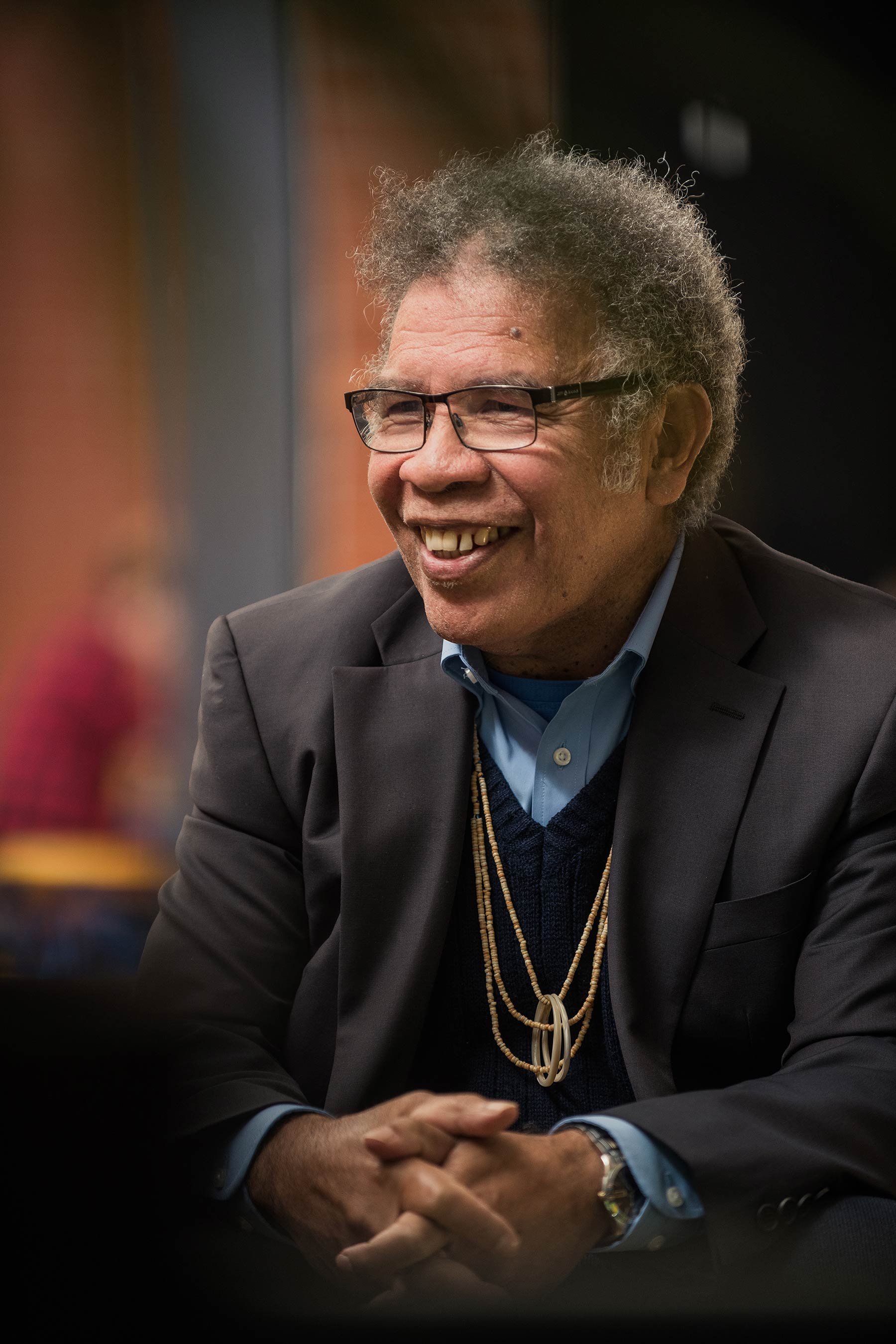“In order to understand the ethics of Indigenous groups within their contexts, you have to understand their foundational moral understandings. Most international development programmes ignore this, taking ‘goodness’ from an international context and saying ‘this is goodness. Do this’. My work doesn’t. I appreciate what it is that people know, and draw out some of the principles that form the bedrock of those systems of morality.”
Kabini works with the Ministry of Foreign Affairs and Trade to run a programme targeting leadership in education in the Solomon Islands. His understanding of ethical systems gives him the tools to teach these leaders how to solve their own problems.
“Teaching in this way, you are giving them what is theirs, so they are less dependent on outsiders, including the University,” says Kabini.
His work with Master’s and doctoral research students in the School of Education helps them understand who they are, by asking questions about what bothers them. “Your research topic of passion is likely to come from who you already are at that point in time. It is important, as early as possible in your life, to be intentional about who you are in your world and, therefore, what you do.”

“In order to understand the ethics of Indigenous groups within their contexts, you have to understand their foundational moral understandings.”
Sometimes Kabini’s students cry in class, because they are releasing their emotions about their negative experiences or catalystic moments of learning. “I will let them cry, as learning is not just of the head. Emotions are the instruments of knowledge creation. I embrace all dimensions of human nature into learning—the psychological, the social relational, the biological, the feeling aspects of the human enterprise.
“I have students who are part-Tokelauan, part-Māori, part-Pākehā, and they are unsure about their identity. I help them to affirm who they are, develop a sense of contentment with who they are, and use their studies, their readings, their time at university to enlarge themselves.”
Kabini has networks across the Pacific he has mentored through programmes such as the Leadership Pacific Cluster Group over the past 15 years, the Vaka Pasifiki Education Thought leaders, the Fellowship of Faithful Mentors (FFM, now a non-governmental organisation focused on mentoring), and the Solomon Islands Research Mentoring Tok stori, comprising the entire Solomon Islands global emerging researchers community. He sees this as his legacy.
“Every week, I hear from at least five of these people who are now in leadership positions themselves. Why is this? It is because I have been their listener, their mentor. I helped them to see who they were.”





